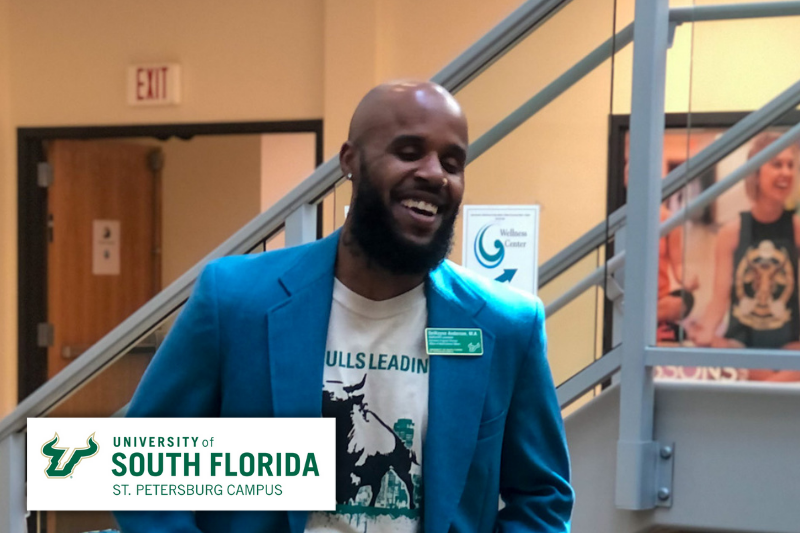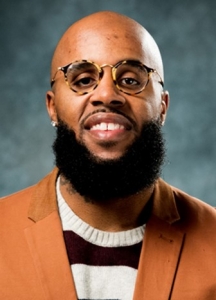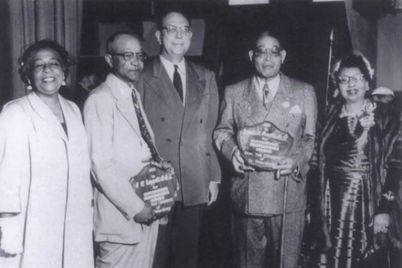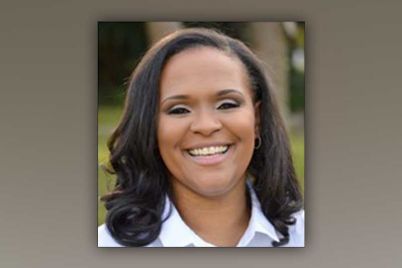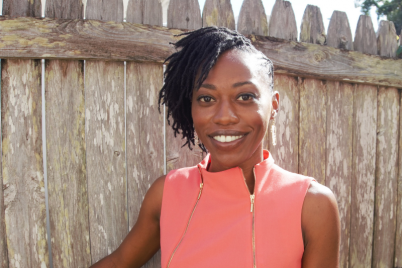Meet DeWayne Anderson, the new assistant program director for the Office of Multicultural Affairs (OMA) at USF’s St. Petersburg campus. He aims to create a welcoming space for all students.
ST. PETERSBURG — As the new assistant program director for the Office of Multicultural Affairs (OMA) at USF’s St. Petersburg campus, DeWayne Anderson wants students to have the same college experience he did, where he felt welcomed and supported.
Anderson credits his mentor, who worked in the multicultural affairs office at his university, for helping him find a career in higher education.
“He was always around, always prevalent, and he looked like me. He was a Black man, too. So, I looked up to him and mimicked what he did; I essentially wanted to be like him,” said Anderson.
As an undergraduate student, Anderson attended Clarion University in Clarion, Pa., on a football scholarship. He was pursuing a degree in sports management until a severe football injury changed his path. Since football was no longer part of his college life, he got involved in student organizations focused on diversity and inclusion.
Originally from Harrisburg, Pa., Anderson received his bachelor’s degree in sports management from Clarion University and his master’s degree in student affairs and higher education from Slippery Rock University in Slippery Rock, Pa.
Anderson found his dream job at the USF St. Petersburg campus in the summer of 2021. We talked to him about his new role, the importance of diversity and inclusion, and becoming a mentor to students.
What does the OMA do?
We’re here for all students, but we focus on underrepresented students. A lot of people think it’s students of color, which is one group that we do help, but we also help our LGBTQIA+ students and partner with Veterans Affairs to help our veteran students get connected to resources. We focus on creating an experience for all underrepresented students to thrive, setting them up for success.
What inspired you to pursue a job in multicultural affairs?
My mentor Rogers Laugand. He is the director of multicultural affairs at Clarion University. I went to a predominately white institution, so I didn’t see a lot of people who looked like me, and I connected to him. I got to see what diversity looked like on campus, and that’s where I learned about inclusion. It wasn’t until I started to learn more about my identity as a Black man that I started to understand what it was.
I also started getting involved with organizations on campus, and after partnering with different groups, I learned much more about different identities. My mentor was overseeing all those organizations, so I thought, who is this man who looked like me doing all these great things and supporting these students?
I wanted to be like him, so I did some soul searching on my biases about certain communities. That’s when I fell in love with advocacy and social justice work.
Why do you think diversity and inclusion are important here?
I think multicultural affairs is important because our students come from so many different places in life. They are highly motivated to get involved, and for me, I feel like it’s my job to be their Rogers Laugand.
I want to be that person to support them while they are going through their journey. I get to educate them and motivate them to do different things.
When I came here, our student organizations were not highly sought out because of the COVID-19 pandemic. But we’re getting them back up and running, and these students are ready to work.
I’m so excited to see that, and it lets me know that diversity and inclusion work is more important than ever here because they want to advocate for their identity. They want to advocate for people who look like them. So, I’m here to help them do that, whether it’s on-campus or in the St. Petersburg community.
What do you hope to accomplish at the USF St. Petersburg campus?
I want to create a hub for students. What I mean by that is a space where I can come into my office, and students will be hanging out because they are comfortable at the OMA. A space where all students, regardless of their race or gender, can feel safe with me.
They can come here and just leave everything at the door and relax and be their authentic self. I want them to have a space to watch YouTube videos, read books, or watch a movie. Whatever the case may be, they can do it at OMA.
I’m also passionate about getting all our student organizations back up and running. I think we started doing that slowly, but we aren’t all the way there yet because of remote learning. It altered the way we do things; this is the first time many students are back on campus.
So, we are taking things slowly by offering a virtual and in-person component. I want to make sure all our student organizations are thriving and in a good place. I know we will get there.

